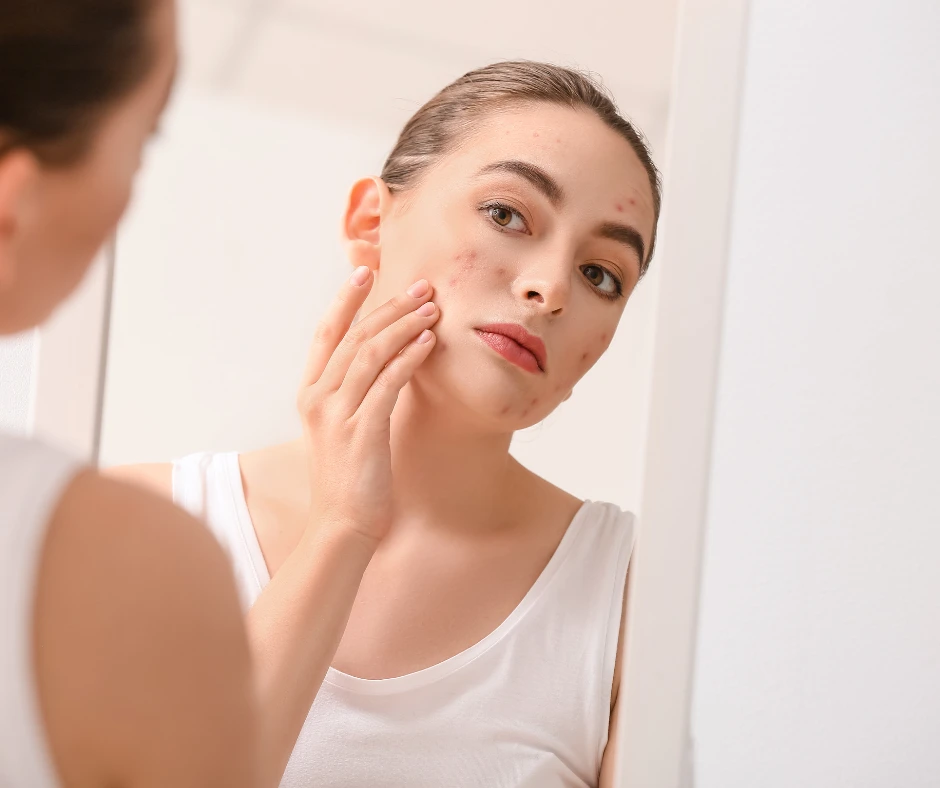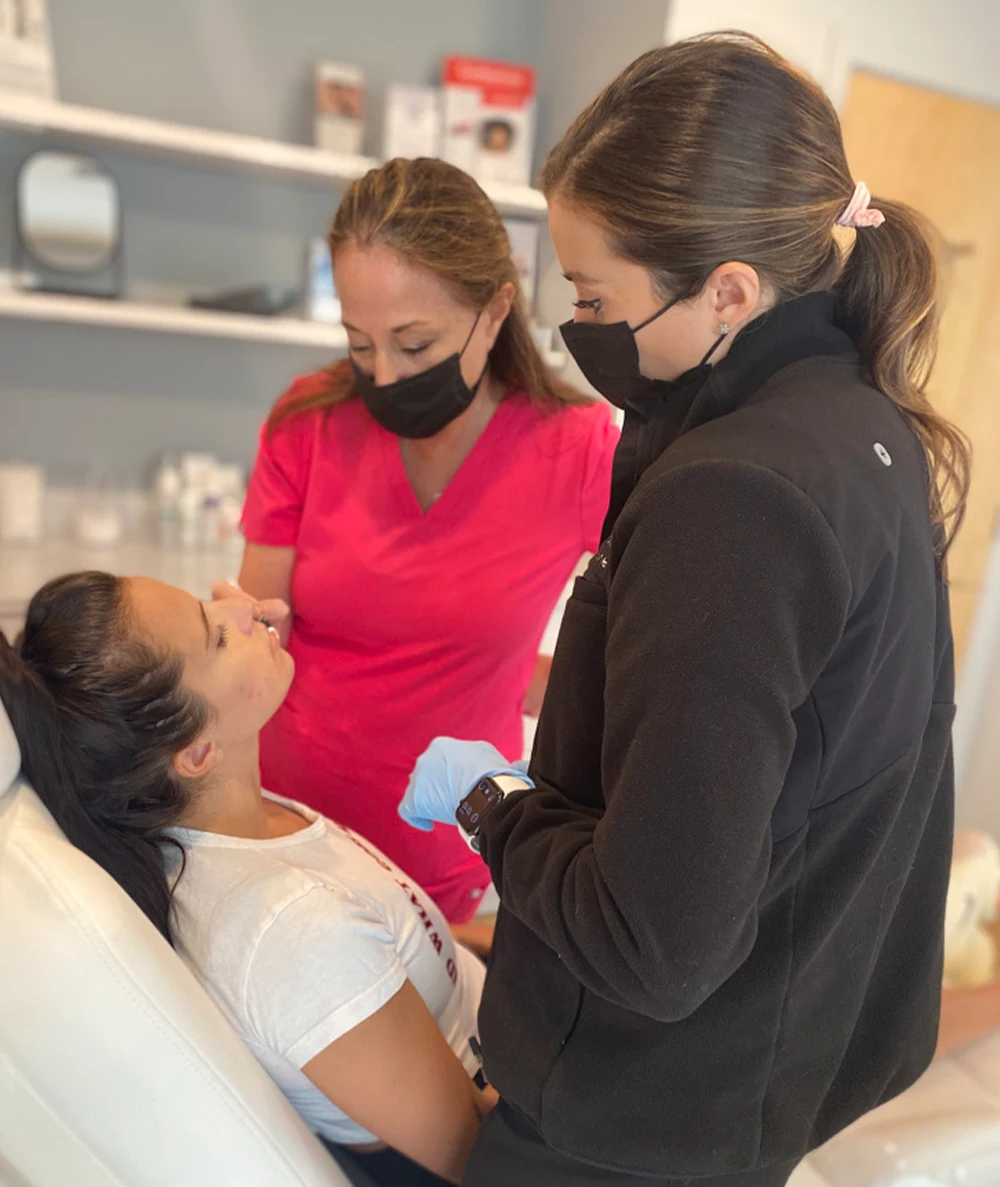Dr. Weishar and Dr. Clark are experts in both medical and cosmetic dermatology and active members of the American Academy of Dermatology. Their combined clinical insight and passion for skin health have earned recognition in national media and medical publications alike.

Cold Sore Symptoms
Symptoms start with a tingling sensation days before fever sores appear. Symptoms may include fever, muscle pain, a headache, and swollen lymph nodes. A cold sore outbreak can take up to 20 days to appear after contracting the virus called herpes simplex type-1. It may last for up to 2 weeks.
What Helps Cold Sores Go Away?
If you have a cold sore, it’s important to consult one of our expert dermatologists, Dr. Weishar or Dr. Clark for timely treatment. This can help reduce the risk of further infection to yourself and others. You are at a greater risk than others if you have an autoimmune disease like HIV or cancer. Or, if you have any of the following concerns:
- Eczema
- Cold sores have spread to other parts of the body, for example, your hands or eyes.
- Cold sores that last for more than two weeks
While laser therapy, OTC topical or oral medications may help, there are other treatment options. Our physicians may prescribe the following antiviral medications as part of a regimen to help promote healing:
- Options may include Docosanol Abreva or Acyclovir cream. These ointments must be applied directly to the blister, using a clean tool for each application.
- She also prescribes drugs such as Acyclovir Zovirax, Valacyclovir Valtrex, Famciclovir or Penciclovir Denavir.
Ready to book or just have a question? Our team is here to help!

Preventative Measures
Patients throughout Philadelphia, Bucks County, and Montgomery County often ask why their cold sores return after treatment. Dr. Weishar and Dr. Clark explain that common triggers, such as stress, fatigue, illness, allergies, and sun exposure, can reactivate the virus. Since there’s no permanent cure, the focus is on prevention and early intervention.
Both doctors offer guidance on lifestyle adjustments and proactive care to help reduce the frequency and severity of outbreaks. Preventative measures may include:
- Taking good care your immune system
- Being sure to get enough rest
- Using a lip balm with UV protection
- Washing your hands
You can prevent the spread of the virus by practicing good hygiene. This includes not sharing utensils, towels, lip balm, or razors. You should also refrain from touching or kissing others if you have the infection.

Why Choose Springhouse Dermatology in Philly
Springhouse Dermatology is home to a highly skilled team of board-certified dermatologists.. Together, they provide exceptional care for patients dealing with recurrent cold sores and other viral skin conditions. Their integrated approach ensures that each patient receives the most effective, personalized treatment available today.
Book your appointment with our expert team if you suffer from recurring cold sores.
FAQ
What causes cold sores?
Cold sores are typically caused by a virus and can be treated with prescription drugs or other therapies.
Are cold sores a threat to my general health?
No, cold sores are generally not dangerous. However, you should see a physician if they last for longer than 2 weeks.




